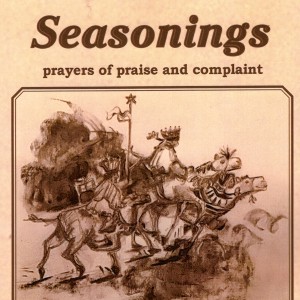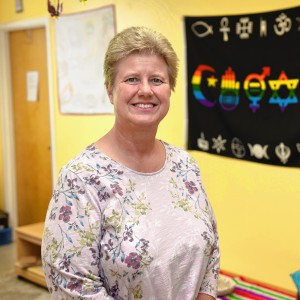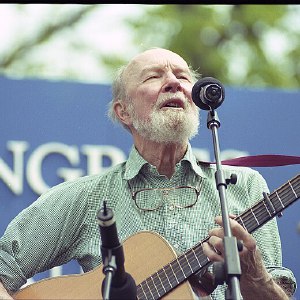Faith Matters: Apocalypse now? Reflecting on the dissolution of our community and church centers
| Published: 02-20-2023 7:24 PM |
This is certainly a time when something is ending and something is beginning. It’s easier to see what’s ending than what’s beginning. How you see what’s ending probably depends on where and when you began.
My first memory was V-J Day (the day on which Imperial Japan surrendered in World War II). I had just turned three years old and it terrified me because sirens were going off and people were running around in the streets yelling. My sister, who is two years older and could remember, told me thatwe had had air-raid drills and had to run to our basement. I thought we were being bombed.
The end of that war was the beginning of the end for our way of life. I want to try to name three of the things that have brought us to this end-time: how we have fought our wars, the dissolution of our communities and the class division of our churches. The three are interwoven.
The draft was re-instituted for the Korean War. For the first time, college boys could be deferred. It was our first war fought largely by the working class. The Vietnam War was my war. The people I hung out with in college and seminary were deferred. We heroically opposed the war we didn’t have to fight, and for good reasons.
The war was fought largely by working class men of all races until the unfairness of the draft became too obvious to ignore and the lottery was instituted, making the draft more fair as the war moved toward its end. Soon after the war, the draft itself was ended. Some said the military leadership realized the army would be better off without the smart-mouthed college kids. From that day to this, our wars have been fought by working class men and women for both patriotic and economic reasons.
My town’s population increased from 2000 people to 8000 people from 1950 to 1960. My family was third generation there and we knew almost everybody. Then we didn’t. Our Main Street slowly died as shopping shifted to the malls, and it was finally bulldozed to make room for a marina. What we lost was the town center where people could meet by accident. In 1964 my fiancé and I walked up Main Street on a beautiful June day at noontime and it took an hour to walk a block because I had to introduce her to everybody. What happened to my town was happening all across the country.
As the population grew, our Presbyterian church also grew from 150 to 450 members. But it went from a mix of working class and middle class people to one of middle and upper class people, as the working class no longer felt comfortable there.
My dad was working class, a railway mail clerk, and in the 50s and 60s both an elder and the custodian in that church. A friend who still lived there in the 90s said that would never happen now. My dad might be the custodian, but he wouldn’t be an elder.
Article continues after...
Yesterday's Most Read Articles
Churches like ours once centered their communities. Now, working class people drifted into the Evangelical churches on the fringes if they went to church at all. As the towns lost their ability to center people, churches like ours began to shrink in size, so that by the 1980s ours was down to 150 again. Now that there was no centering to our towns and there were only fringes, the Evangelicals thrived because they knew how to operate on the fringes.
The churches began to reflect and enhance the polarization in the country at large, with the old center churches more and more providing a theology for the Left, losing their more conservative middle and upper class members in the process, and Evangelicals providing a theology for the Right.
What I’ve described has happened all across our country over the last three generations and are major factors in the class polarization that defines our end-times. (What I’ve not described is the looming shadow of big money over all of this).
What is ending is any sort of community life that embraces us all. We don’t fight together, we don’t live together, we don’t go to church together. So, what’s beginning?
T.S. Elliot wrote, “This is the way the world ends / This is the way the world ends / This is the way the world ends / Not with a bang but a whimper.”
In the years after he wrote “The Hollow Men,” T.S. Eliot was ambushed by faith. Then he heard in that whimper the cry of a newborn baby. So, we have to learn somehow to listen together for the cry of something new being born among us.
Allen Comstock is a retired United Church of Christ pastor. He first came to these hills in 1970 to be pastor of the churches in Heath and Rowe. He then moved to Stockbridge, then to Boston, and finally back here to Charlemont, where he was pastor until 2005. He has since served churches in this area as interim pastor for churches who were searching for a new pastor.

 Speaking of Nature: Indulging in eye candy: Finally, after such a long wait, it’s beginning to look like spring is here
Speaking of Nature: Indulging in eye candy: Finally, after such a long wait, it’s beginning to look like spring is here Celebrating ‘Seasonings’: New book by veteran preacher and poet, Allen ‘Mick’ Comstock
Celebrating ‘Seasonings’: New book by veteran preacher and poet, Allen ‘Mick’ Comstock Faith Matters: How to still the muddy waters of overthinking: Clarity, peace and God can be found in the quiet spaces
Faith Matters: How to still the muddy waters of overthinking: Clarity, peace and God can be found in the quiet spaces A time for every purpose under heaven: Free sing-a-long Pete Seeger Fest returns to Ashfield, April 6
A time for every purpose under heaven: Free sing-a-long Pete Seeger Fest returns to Ashfield, April 6
